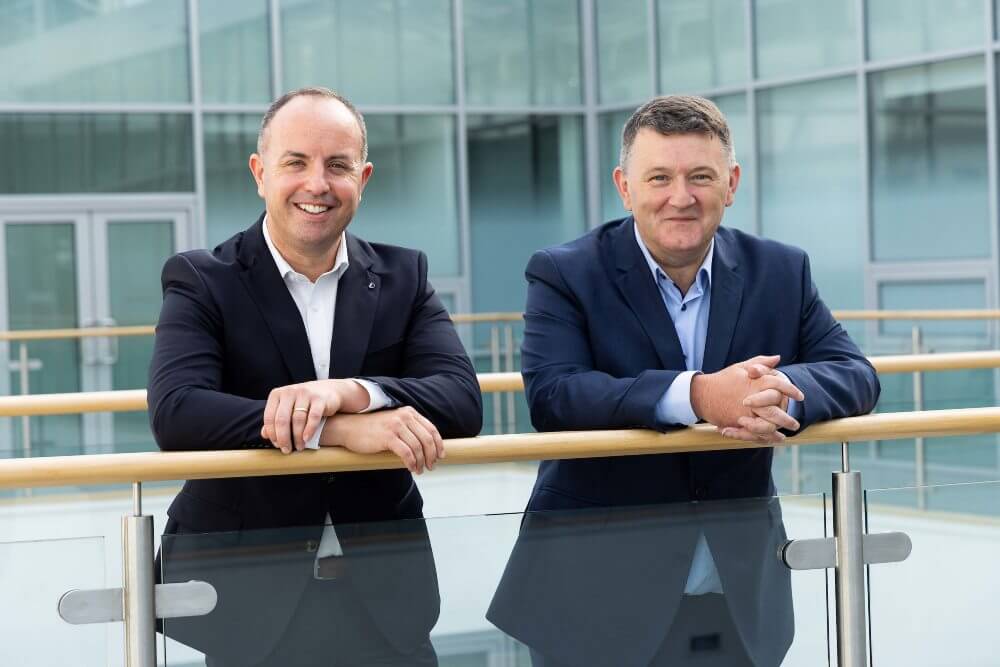Pat Sutton from Xeinadin on the role of data in building an effective financial strategy.
The value of data to modern businesses is indisputable. From performance analytics to market research and customer intelligence s, data is essential to how organisations plan, make operational decisions and unlock new opportunities for growth.
It is also fundamental to develop an effective financial strategy for businesses to support risk management, cost optimisation and accurate forecasting.
“If finance teams are not leveraging data well enough, they could be at risk of missing out on these opportunities to advance their business”
However, despite the benefits, it is clear financial departments are struggling to source the correct data.
According to recent research from financial management software firm AccountsIQ, 86% of CFOs and finance leaders in Ireland feel that decisions about financial strategy are being made without sufficient data.
On top of that, less than half feel they have access to the right kind of data and analytics to make informed business decisions. On top of that, less than half feel they have access to the right kind of data and analytics to make informed business decisions.
If finance teams are not leveraging data well enough, they could be at risk of missing out on these opportunities to advance their business.
How data improves finance strategies
Financial strategy is all about how business objectives are financed. This takes two elements into account – growth aspirations on the one hand and resourcing on the other. An effective financial strategy marries the two together in a way that is most effective and efficient.
Data first and foremost informs what resources are at the user’s disposal. Business growth often requires investment; therefore, the user should know what is available to invest, or what level of debt could be safely taken on within the current financial structure to fund investment. Another element to consider is what else would need to be done to change the structure to safely take on extra debt burdens if required.
Notice that the word ‘safely’ is used above twice. Financial strategy is also about risk management – funding ambitions safely – which includes identifying risk factors both inside and outside the business. In terms of outside risk factors, it is essential to consider wider economic trends as well as compliance requirements. Again, data helps to identify what these risk factors are, which allows for mitigation within the financial strategy of a business.
Data is also hugely valuable due to the fact that it provides past insights which can be implemented with the aim of steering future developments. Since most businesses want to track current performance using financial KPIs, there are now powerful techniques like predictive analytics and AI-driven forecasting. Another way of using data is by looking at past and present performance to build detailed statistical models of how financial decisions are likely to play out in terms of future performance.
How data deficiencies hinder financial strategy
If a company’s approach to financial data management and analytics is not robust enough, they risk locking themselves out of future-facing insights and the level of informed decision-making that goes with it. This puts them at a competitive disadvantage when compared to businesses who are using financial data in an effective manner.
The AccountIQ survey also gives hints at wider drawbacks; for instance, CFOs don’t feel in control and are feeling the pressure from all angles.
When asked about the main challenges facing their organisation, 40% said the impact of rising costs on profitability, 40% said cash flow, 37% said revenue and profit targets, 29% the accuracy of reporting, 24% compliance risks – the list goes on.
This all has a human cost as well as an operational one, as Irish CFOs say they feel overwhelmed by the challenges facing them 8.5 times a month on average.
Turning complexity into clarity
Put simply, data can establish a feeling of control in relation to the various moving parts that go into financial management.
It helps with the level of insight needed to make informed, meaningful, effective decisions. It replaces guesswork with substantial intelligence; and it helps with confidence in relation to the direction being taken, resulting in a less stressful and more informed financial strategy.
With the right people coupled with the right data, businesses can make smarter decisions today and build a more secure financial future tomorrow. With the right data, businesses can make smarter decisions today and build a more secure financial future tomorrow.
-
Bank of Ireland is welcoming new customers every day – funding investments, working capital and expansions across multiple sectors. To learn more, click here
-
For support in challenging times, click here
-
Listen to the ThinkBusiness Podcast for business insights and inspiration. All episodes are here. You can also listen to the Podcast on:
-
Spotify
-
SoundCloud
-
Apple






